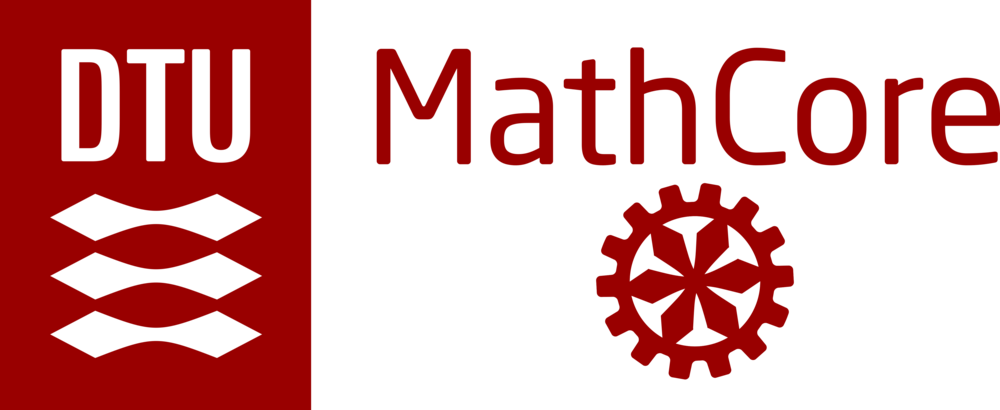Permanent Faculty
-
Johan Rosenkilde, Associate Professor
Keywords: discrete mathematics, algebra, computer algebra, error-correcting codes, coding theory, cryptography, number theory, finite fields, algebraic curves, algorithms, exact computation
I research in fast algorithms for exact computation in discrete algebra, with an emphasis on applications in digital communication, especially error-correcting codes and cryptography. These two serve opposite purposes in a sense: cryptography hides information from spying eyes, while error-correcting codes protects a message from errors that occur during storage or transmission. Central in all of this is efficient algebraic computation, such as solving special equations over finite fields or polynomials on the fly. I use algebraic curves and number theory as powerful tools for constructing good solutions. read more
Peter Røgen, Associate ProfessorKeywords: Differential geometry, topology of curves, topology of surfaces, protein structures, protein structure classification, protein structure prediction
My research is based on a mixture of differential geometry and low dimentional topology reffeared to as geometric knot theory. Starting from basic mathematical research and general industrial applications, my main focus turned to adaption of the consept of knot invariants to geometric invariants for the open string structures of proteins and RNA. Geometric invariants provides fast methods for structural description, comparison, clustering, and automatic classification of protein structures and are amongst the very few methods that mathematically can detect the type of “topological” changes biologists use to define protein fold classes. My metric interest in proteins configuration space carries on in what I call metric training of knowledge-based potentials for protein structure prediction. It may be seen as reverse engineering the best possible potential energy function where best is specified by a metric. read more
Martin Skovgaard Andersen, Associate ProfessorKeywords: optimization, numerical linear algebra, scientific computing
My research focuses on convex optimization and its applications in science and engineering. I am particularly interested in large-scale conic and semidefinite optimization and algorithms that exploit some kind of mathematical structure (such as sparsity or rank stucture) in order to solve large, challenging optimization problems faster. read more
Allan Peter Engsig-Karup, Associate professorKeywords: numerical analysis, differential equations, high-performance computing, machine learning, uncertainty quantification, finite element methods, numerical algorithms, scientific computing, mathematical modelling, iterative methods for large system of equations, model reduction
I do teaching and research in applied computational mathematics and engineering science. My research focus on modelling and advanced simulation relevant for development of useful proofs-of-concepts (theoretical/practical) for exploiting new modern technologies and improving scientific algorithms and applications. I work at interfaces of math modelling, applied mathematics, statistics and programming to enable scientific computations on modern powerful computers of scientific and engineering relevance. read more
Yiqiu Dong, Associate ProfessorKeywords: numerical linear algebra, matrix computation, inverse problems, variational methods, regularization methods, mathematical image processing, tomography reconstruction, optimization
My main research topic is imaging related inverse problems. The main tool that I use is variational methods, i.e., combining Bayesian statistics and regularisation techniques to propose suitable minimisation problems that mathematically describe the inverse problems and its desired solutions. Then, I apply as well as develop advanced optimisation algorithms for solving the proposed minimisation problems. Recently I have also begun to introduce uncertainty quantification technique into inverse problems. read more
Per Christian Hansen, ProfessorKeywords: uncertainty quantification, inverse problems, matrix computation, regularization methods
Per Christian Hansen is a VILLUM Investogator and his research focuses on computational methods for the solution of large mathematical and engineering problems. His main research area concerns the numerical solution of inverse problems in, e.g., tomography and iamge deblurring. His work on numerical methods for regularization is internationally recognized. His h-index is 48 (March 2019) and he is a SIAM Fellow. Per Christian Hansen is professor of Scientific Computing at the Department of Informatics and Mathematical Modelling. He was awarded the Danish Dr. Techn. doctoral degree in 1996 from DTU in the area of numerical analysis. He has spent several research visits at American universities, such as Stanford University, UCLA, Emory University, and Tufts University. Per Christian Hansen teaches numerical algorithms and inverse problems. He has published 4 books on numerical methods and inverse problems and more than 100 scientific papers in international journals. read more
PhDs, Postdocs and Research Assistants
Coming soon.
